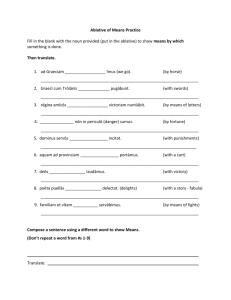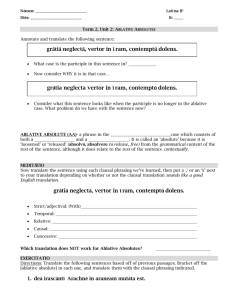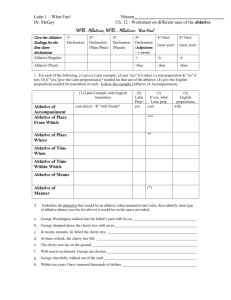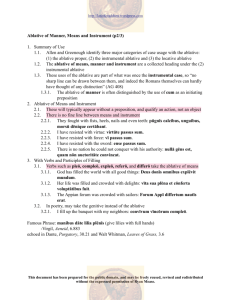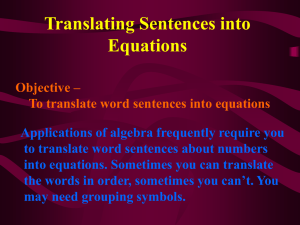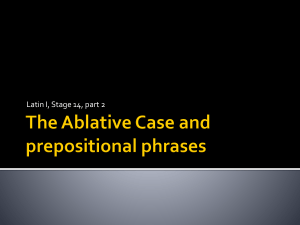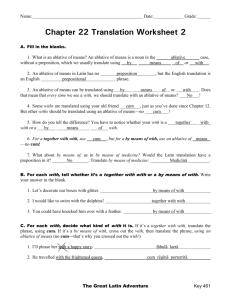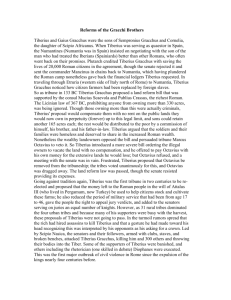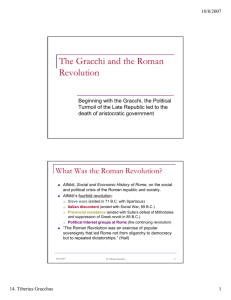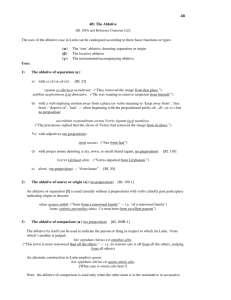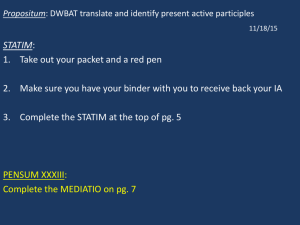Nōmen: Diēs est Class Notes Latin II, R______ Ablative Absolutes
advertisement
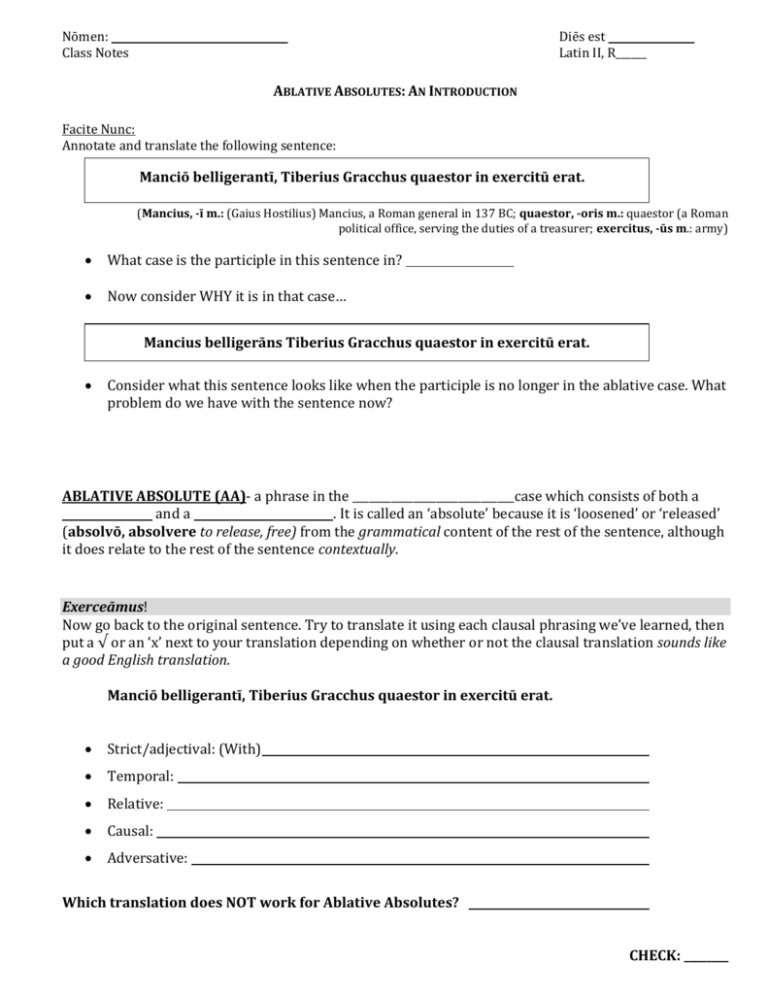
Nōmen: Class Notes Diēs est Latin II, R______ ABLATIVE ABSOLUTES: AN INTRODUCTION Facite Nunc: Annotate and translate the following sentence: Manciō belligerantī, Tiberius Gracchus quaestor in exercitū erat. (Mancius, -ī m.: (Gaius Hostilius) Mancius, a Roman general in 137 BC; quaestor, -oris m.: quaestor (a Roman political office, serving the duties of a treasurer; exercitus, -ūs m.: army) What case is the participle in this sentence in? Now consider WHY it is in that case… Mancius belligerāns Tiberius Gracchus quaestor in exercitū erat. Consider what this sentence looks like when the participle is no longer in the ablative case. What problem do we have with the sentence now? ABLATIVE ABSOLUTE (AA)- a phrase in the _____________________________case which consists of both a and a . It is called an ‘absolute’ because it is ‘loosened’ or ‘released’ (absolvō, absolvere to release, free) from the grammatical content of the rest of the sentence, although it does relate to the rest of the sentence contextually. Exerceāmus! Now go back to the original sentence. Try to translate it using each clausal phrasing we’ve learned, then put a √ or an ‘x’ next to your translation depending on whether or not the clausal translation sounds like a good English translation. Manciō belligerantī, Tiberius Gracchus quaestor in exercitū erat. Strict/adjectival: (With) Temporal: Relative: Causal: Adversative: Which translation does NOT work for Ablative Absolutes? CHECK: ________ Exerceāmus! ABLATIVE ABSOLUTE PRACTICE Translate the following sentences. Bracket off the [ablative absolute] in each one, and translate them with the clausal phrasing indicated. 1. exercitū victō, Mancius per noctem suōs mīlitēs relinquit et eī ā hostibus oppugnātī sunt. (exercitus, -ūs m.: army; relinquō, relinquere, relinquī, relictus: to abandon, leave behind; oppugnō, oppugnāre, oppugnāvī, oppugnātus: to attack, besiege) a. What type of participle is in the AA? PAP / P3 b. Translate the AA as a temporal clause: 2. Tiberiō respectō, Numantīnī foedus pacis cum Rōmānīs mīlitibus consensērunt. (Numantīnus, -a, -um: Numantine (person from Numantia); foedus, foederis n.: treaty, pact; respiciō, respicere, respexī, respectus: to respect, consider; consentiō, consentīre, consensī, consensus: to agree to, consent) a. What type of participle is in the AA? PAP / P3 b. Translate the AA as a causal clause: 3. foedere signatō, Numantīnī Tiberium in urbem ad epulum praedamque dandum invitāvērunt. (signō, signāre, signāvī, signātus: to sign, stamp; epulum, -ī n.: feast, banquet; invitō, -āre, -āvī, -ātus: to invite) a. What type of participle is in the AA? PAP / P3 b. Translate the AA as a temporal clause: CHALLENGE Translate the following sentence into Latin, making the underlined phrase an AA. 4. After peace was made, Tiberius returned to Rome without spoils but with only incense (having been) taken from the Numantines. (incensum, -ī n.: incense; modō: only)
